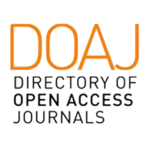CHAMADA REVISTA DE LETRAS UFC 2025.1
REVISTA DE LETRAS UFC - Jan./Julho 2025
Título: Circulação transatlântica da Literatura traduzida entre a Europa e as Américas
Title: The Transatlantic Circulation of Literature between the Americas and Europe
Organizadores:
Arvi Sepp (VUB), Luana Ferreira de Freitas (UFC), Marie Helene Catherine Torres (UFSC), Walter Carlos Costa (UFC e UFSC)
A circulação da literatura traduzida é um fenômeno rico e complexo que envolve fluxos transatlânticos entre as Américas e a Europa. Ao longo da história, tem havido uma troca contínua de obras literárias entre esses dois continentes, alimentando um diálogo cultural e literário enriquecedor. As traduções permitem que as vozes dos autores e as perspectivas culturais sejam compartilhadas além das fronteiras linguísticas, conectando leitores de diferentes partes do mundo. Autores como Gabriel García Márquez, Julio Cortázar, Clarice Lispector e Machado de Assis tiveram suas obras amplamente traduzidas para o inglês, francês, espanhol e outros idiomas europeus, permitindo que suas vozes ressoem globalmente. E, na outra direção, as traduções de William Shakespeare, Miguel de Cervantes e Dante Alighieri ajudaram a moldar os cânones americanos.
A circulação transatlântica da literatura traduzida tem sido impulsionada tanto por fatores culturais quanto comerciais. As editoras desempenham um papel crucial na seleção e promoção de obras para a tradução. Como observou Pascale Casanova em seu livro A República Mundial das Letras, existem fluxos assimétricos de tradução, com obras europeias frequentemente encontrando um público mais amplo nas Américas do que na direção inversa.
A circulação da literatura traduzida entre as Américas e a Europa tem, de fato, um impacto significativo na formação de identidades literárias e no enriquecimento do panorama literário global. Ao ler obras traduzidas, os leitores são expostos a novas perspectivas, estilos e temas, expandindo seus horizontes literários. Essa troca transatlântica também promove o diálogo intercultural, levando a uma maior compreensão e apreciação das diferenças e semelhanças entre as tradições literárias.
Aceitamos artigos, resenhas e entrevistas que versem sobre a tradução literária como agente de intercâmbio cultural; a importância da tradução literária na formação das literaturas em nível internacional; os desafios da tradução na circulação de cultura; o impacto da tradução literária na recepção de obras estrangeiras; a tradução literária como mediadora entre culturas hegemônicas e marginais; o papel da tradução na literatura pós-colonial; a tradução como meio de preservação da identidade no exílio e na circulação (i)migratória; a função da tradução na divulgação da literatura no sentido amplo (literatura de viagem, correspondência, biografias, etc.).
Os artigos, resenhas e entrevistas podem estar escritos em português, galego, inglês, francês, espanhol e italiano.
Os manuscritos devem ser submetidos seguindo as instruções em http://periodicos.ufc.br/revletras/about/submissions até 30 de novembro de 2024.
Em “Comentários para o editor”, deve obrigatoriamente constar “volume 44(1), Dossiê Estudos da Tradução.”
Os textos submetidos devem seguir as normas do periódico, disponíveis em http://www.periodicos.ufc.br/revletras/about/submissions#authorGuidelines A publicação do número 44 está prevista para 2025.1
English
The circulation of literature in translation is a rich and complex phenomenon involving transatlantic flows between the Americas and Europe. Throughout history, there has been a continuous exchange of literary works between these two continents, fostering an enriching cultural and literary dialogue. Translation allows authors' voices and cultural perspectives to be shared across linguistic boundaries, connecting readers from different parts of the world. Authors such as Gabriel García Márquez, Julio Cortázar, Clarice Lispector and Machado de Assis have had their works translated into English, French, Spanish, and other European languages, allowing their voices to resonate globally. And in the other direction, translations of William Shakespeare, Miguel de Cervantes, and Dante Alighieri have helped shape the American canon.
The transatlantic circulation of translated literature is driven by both cultural and commercial factors. Publishers play a crucial role in selecting and promoting works for translation. As Pascale Casanova noted in her book The World Republic of Letters, there are asymmetrical flows of translation, with European works often finding a wider audience in America than vice versa.
Indeed, the circulation of translated literature between the Americas and Europe has a significant impact on the formation of literary identities and the enrichment of the global literary panorama. Reading translated works exposes readers to new perspectives, styles, and themes, thus broadening their literary horizons. This transatlantic exchange also fosters intercultural dialogue, leading to a greater understanding and appreciation of the differences and similarities between literary traditions.
We welcome articles, reviews, and interviews on literary translation as an agent of cultural exchange; the importance of literary translation in the formation of literatures at the international level; the challenges of translation in the circulation of culture; the impact of literary translation on the reception of foreign works; literary translation as a mediator between hegemonic and marginal cultures; the role of translation in postcolonial literature; translation as a means of preserving identity in exile and (im)migratory circulation; the role of translation in the dissemination of literature in the broadest sense (travel literature, correspondence, biographies, etc.).
Articles, reviews and interviews may be written in Portuguese, Galician, English, French, Spanish and Italian. Manuscripts must be submitted by November 30, 2024, following the instructions at http://periodicos.ufc.br/revletras/about/submissions. "Comments to the editor" must mention "Volume 44(1), Dossier Translation Studies". Submissions must follow the journal's guidelines, available at http://www.periodicos.ufc.br/revletras/about/submissions#authorGuidelines. Volume 44, Issue 1 is scheduled for publication in August 2025.
Referências:
Casanova, P. (2002). A República Mundial das Letras. Trad. Marina Appenzeller. São Paulo: Estação Liberdade.
.png)






.png)
